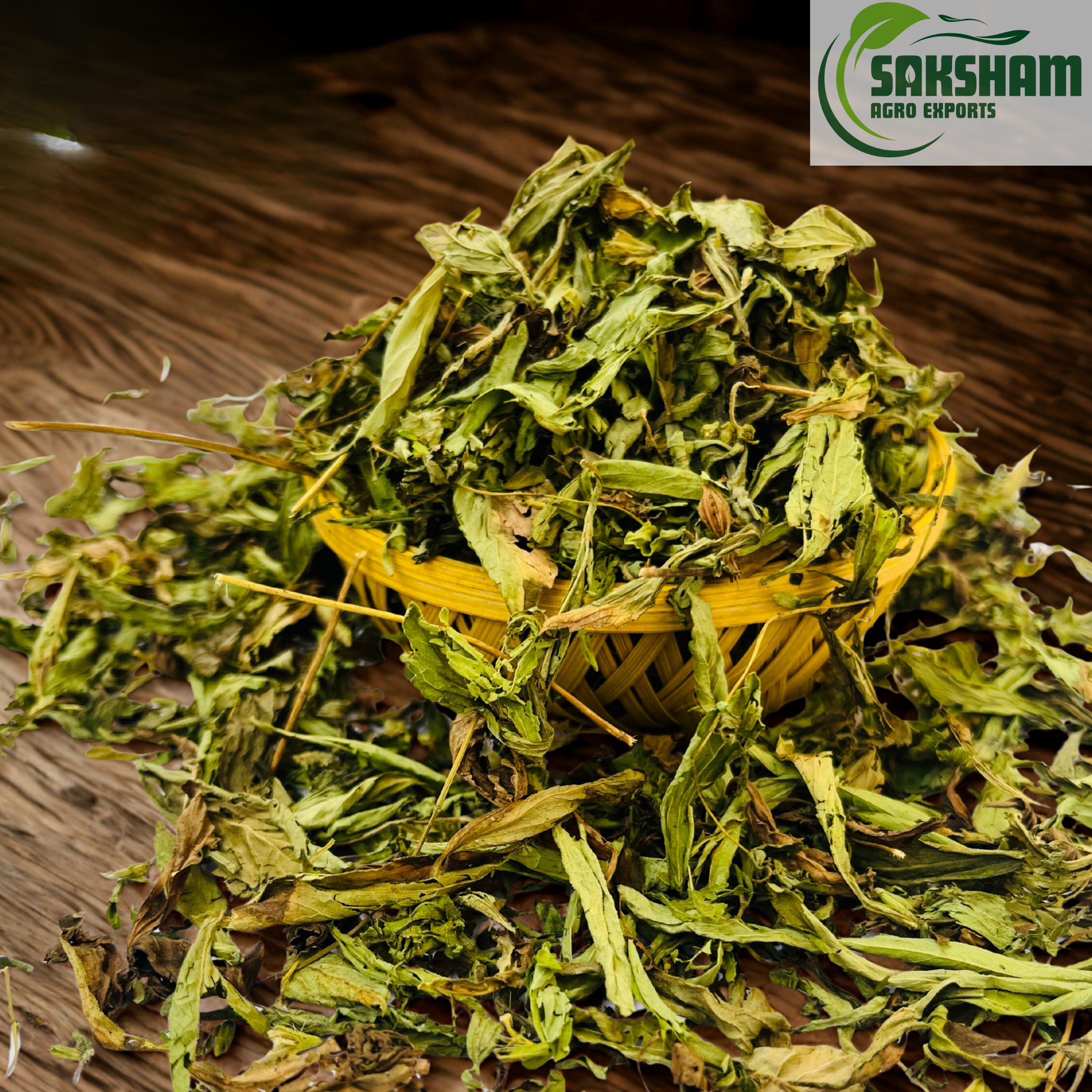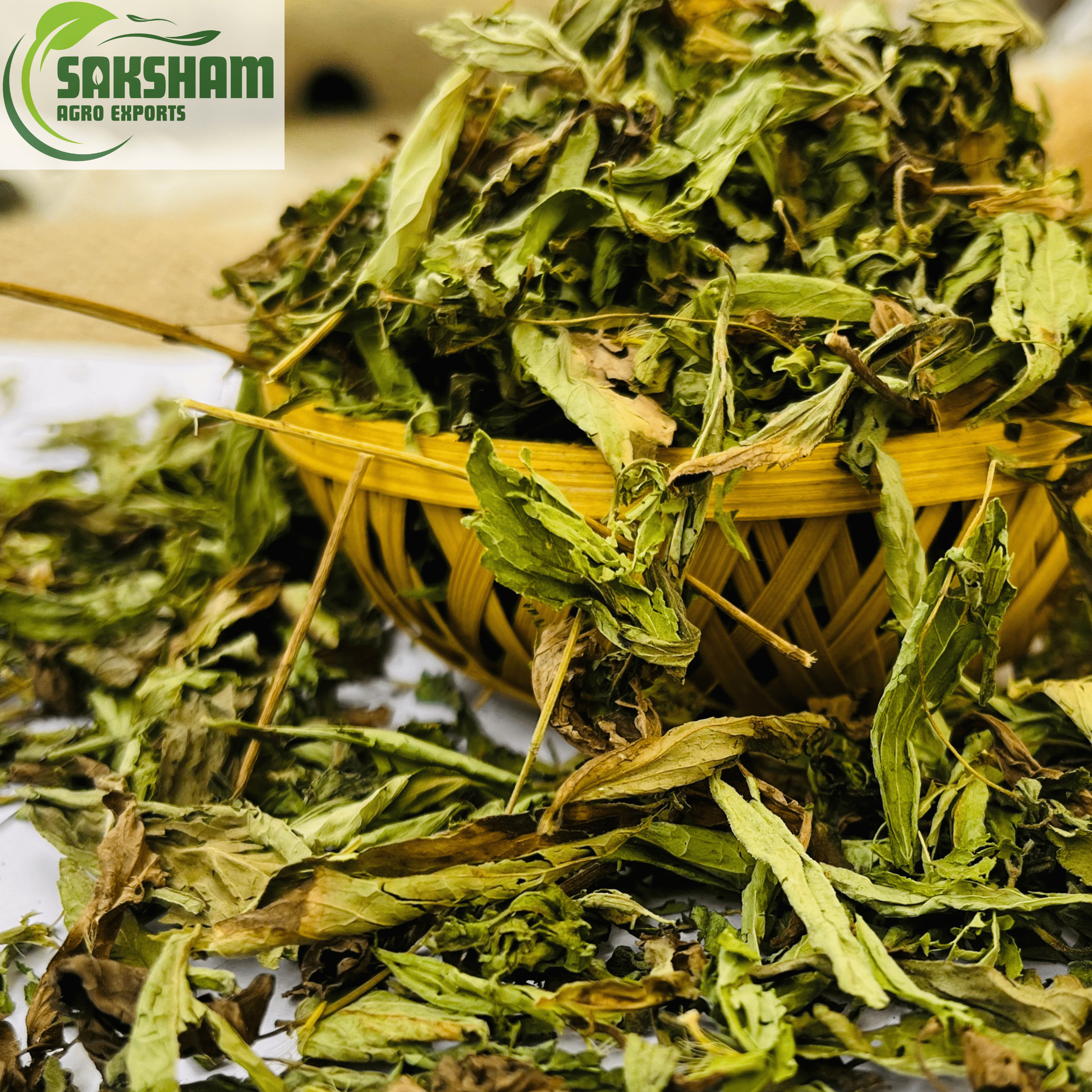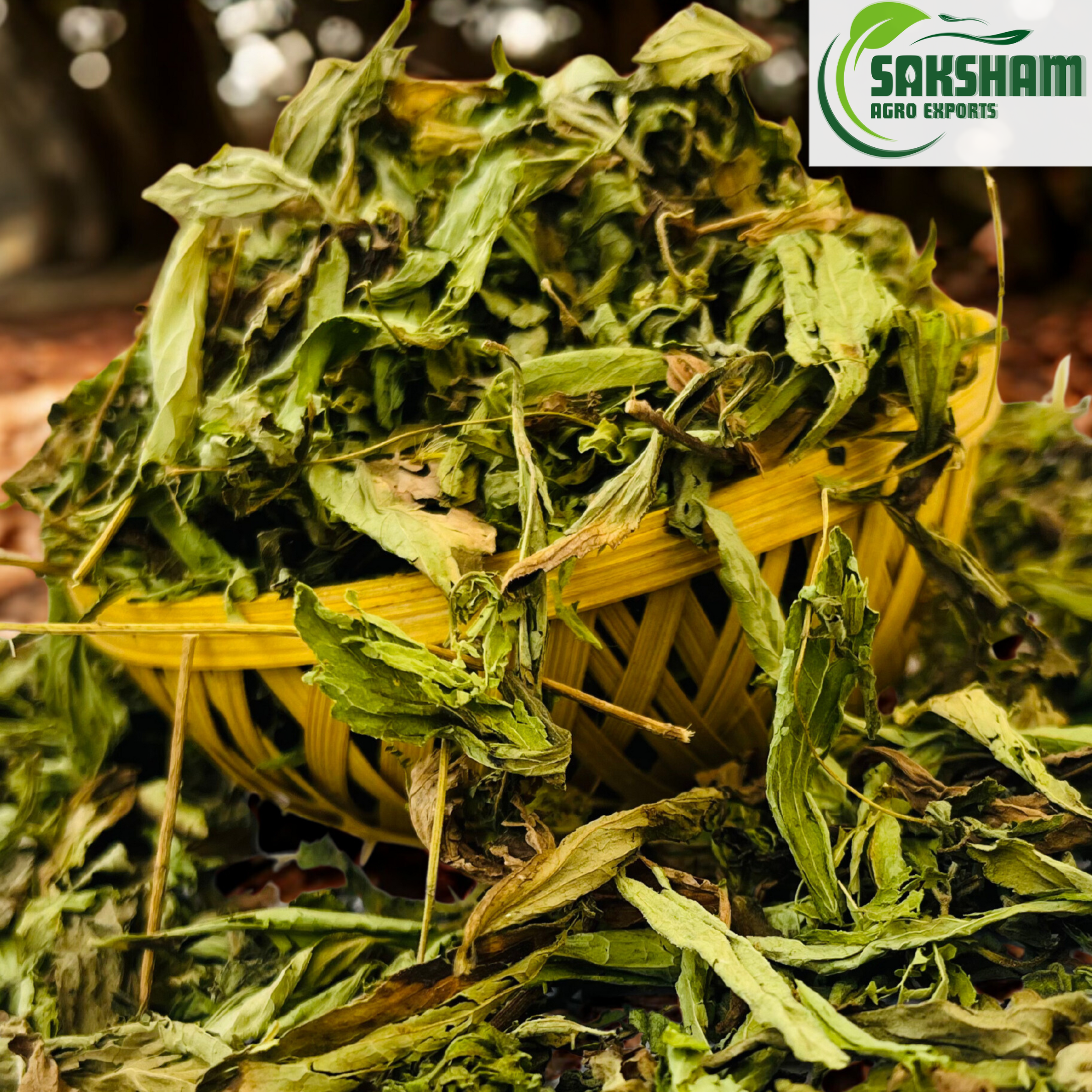Stevia Leaves (Stevia rebaudiana Bertoni)



Scientific Name
- Stevia rebaudiana Bertoni
Common Names
- English: Stevia, Sweet Leaf, Sugar Leaf, Honey Leaf
- Hindi: Meethi Patti, Meethi Tulsi
- Other Names: Sweet Herb of Paraguay, Natural Sweetener Leaf
Description
Stevia, scientifically known as Stevia rebaudiana, is a perennial shrub native to South America and cultivated worldwide for its natural sweetening properties. Its leaves contain compounds called steviol glycosides, which are up to 300 times sweeter than sugar but contain no calories. Stevia is commonly used as a sugar substitute in beverages, desserts, and health products, making it popular among diabetics and health-conscious consumers.
Health Benefits of Stevia Leaves
Stevia is valued as a natural, zero-calorie sweetener with multiple health benefits:
- Diabetes-Friendly – does not raise blood sugar levels, safe alternative to sugar.
- Aids Weight Management – calorie-free, helps reduce sugar intake.
- Supports Heart Health – may help lower blood pressure in some cases.
- Oral Health – prevents cavities and tooth decay (unlike sugar).
- Rich in Antioxidants – protects cells against oxidative stress.
Usage of Stevia Leaves
- Culinary Uses
- Fresh or dried leaves used to sweeten teas, herbal drinks, and infusions.
- Stevia leaf powder used in desserts, smoothies, yogurts, and baked goods.
- Extracts (liquid or powdered steviol glycosides) added to packaged foods as a natural sweetener.
- Medicinal/Health Uses
- Used in Ayurveda and herbal medicine as a natural sugar substitute for diabetics.
- Stevia tea consumed to regulate blood sugar and digestion.
- Industrial Uses
- Widely used in diet sodas, sugar-free chocolates, candies, jams, and health drinks.
- Included in nutritional supplements as a sugar-free sweetening agent.
